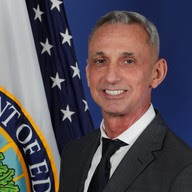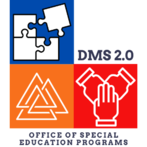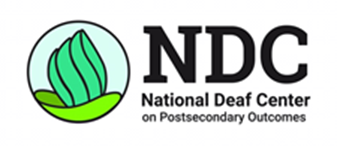In This Issue:
From the Director

Message from Acting OSEP Director, Dr. David Cantrell
Hello Stakeholders! As the Acting OSEP Director I continue to lead our team as we work to support children with disabilities (CWD) safely returning to school as quickly as possible. On March 2, 2021, Dr. Cardona was sworn in as Secretary of Education and he quickly began leading the effort to get children back in classrooms.
We are actively responding to President Biden’s Executive Order on Supporting the Reopening and Continuing Operation of Schools and Early Childhood Programs. On February 12, the Department released the “U.S. Department of Education COVID-19 Handbook Volume 1: Strategies for Safely Reopening Elementary and Secondary Schools”. Development of Volume 2 is currently underway with OSEP leading development of content supporting students behavioral, social/emotional, and mental health needs.
We are collaborating with other Departments to include, the Office of Elementary and Secondary Education, Institute for Educational Sciences, and the Office of Educational Technology, to ensure that infants, toddlers, children and youth with disabilities and their families are included and considered as guidance is developed. In addition, we continue to meet with External Stakeholders and coordinate with our Technical Assistance Centers, and actively seek feedback to respond to the most pressing needs in the field.
On Wednesday, March 24, 2021, The Department hosted a Summit on the National Safe School Reopening. Participants in the summit included President Joe Biden, Vice President Kamala Harris, Dr. Jill Biden, First Lady of the United States, Dr. Miguel Cardona, Secretary of Education, Dr. Rochelle Walensky, Director of the Centers for Disease Control and Prevention, Dr. Linda Darling-Hammond, President and CEO of the Learning Policy Institute, and students, educators, and representatives from school districts across the country. The summit was designed to convene district leaders, educators, and students, to share best practices and provide technical assistance to those navigating the return to in-person learning across the country.
This month we’re looking forward to a few exciting events from our TA Centers and Stakeholders.
- On April 12, 2021, The PROGRESS Center will host a webinar: Promoting Progress for Students with Disabilities.
- Lead for Literacy will present the sixth and seventh sessions in the NAESP-Lead for Literacy Center series.
- The National Center on Intensive Intervention and the Center on Positive Behavioral Interventions will host a joint webinar on Intensive Intervention: Supporting Secondary Students with Intensive Behavior Needs.
- The NDC will continue to host quarterly regional meetings for state leaders in vocational rehabilitation and education.
Keep reading below for additional information!! Thank you for all that you do to support our infants, toddlers, children and youth with disabilities and their families! It’s your dedication and resiliency that makes our work possible.
David Cantrell, Ph.D.
Acting Director
Office of Special Education Programs
|
Updates From OSEP

Statutory Changes Ease Provision of Accessible Materials for Students with Disabilities
As of February 12, 2021, a student with a reading or perceptual disability, "who is unable to read printed works to substantially the same degree as a person without an impairment or disability," can now be certified as an eligible person by the same range of professionals as students who are blind, low vision, or have physical impairments. The revised list of certifiers includes several new school-based titles, including educators, school psychologists, and librarians. Read NIMAS Terms Clarified Post Marrakesh.
|
Other ED Updates

EquiLearn Virtual Roundtable: Antiracism, Universal Design for Learning, and the Woope Sakowin (Seven Laws)
On Thursday, April 8th from 3:30pm to 4:30pm ET, join the Region III Midwest and Plains Equity Assistance Center (MAP Center) as they highlight how the Woope Sakowin (Seven Laws), universal virtues of the Lakota people and the goals of Universal Design for Learning (UDL) can be used to honor and engage every learner in a safe, adaptable, and creative learning environment. This webinar meets the needs of students and educators increasing awareness of the varying needs and supports for children with disabilities from diverse backgrounds. To register for this webinar click here.
|
 |

Addressing Trauma in Educational Settings, Module 3: School Systems, Policies, and Procedures to Support Students Experiencing Trauma
On Tuesday, March 30th from 3:00pm to 5:00pm ET Regional Educational Laboratory (REL) Appalachia will host a webinar for school leaders to discuss how they can implement schoolwide changes in systems, policies, and procedures to support students experiencing trauma. To register for this webinar, click here.
|
|
English Learners in Secondary Schools: Trajectories, Transition Points, and Promising Practices
On Wednesday, April 21st at 3:30pm ET the Office of English Language Acquisition (OELA) will host a webinar in which they will discuss what research has shown about the academic trajectories of English Learners (EL) at the secondary level, including the trajectories of newcomers, students who have been labeled long-term ELs, ELs with disabilities, and former ELs. To register for this webinar, click here.
|
|
|
Dose of Data

Did You Know?
Based on four-year adjusted cohort graduation rate (ACGR) data, 68.2% of students with disabilities graduated with a regular high school diploma in the US in SY 2018–19 as compared to 67.1% of students with disabilities in SY 2017–18.
Sources:
- National Center for Education Statistics. Common Core of Data. Data Tables. Table 1. Public high school 4-year adjusted cohort graduation rate (ACGR), by race/ethnicity and selected demographic characteristics for the United States, the 50 states, the District of Columbia, and Puerto Rico: School year 2017–18.
- National Center for Education Statistics. Common Core of Data. Data Tables. Table 1. Public high school 4-year adjusted cohort graduation rate (ACGR), by race/ethnicity and selected demographic characteristics for the United States, the 50 states, the District of Columbia, and Puerto Rico: School year 2018–19.
|
SY 2018-19 Adjust Cohort Graduation Rate Data Files Are Now Available
The SY 2018–19 Four-Year Adjusted Cohort Graduation Rate data files are now publicly available and accessible from the EDFacts Initiative Site or the NCES Website. These releases include graduation rates for students with disabilities at the national, state education agency, local education agency and school levels.
Announcements
State Performance Plans / Annual Performance Reports
OSEP appreciates States’ timely submission of their State Systemic Improvement Plans on April 1, 2021. The SPP/APR clarification period for Part C will be from April 13–27, 2021, and for Part B will be from April 15–29, 2021.
IDEA Part B/C Grants
The public participation period has commenced for both IDEA Part B and C programs and OSEP is reviewing State’s websites to verify that information.
We appreciate your patience as you wait for our release of the FFY 2021 allocation tables. The release of these documents has been impacted by the appropriation of additional funds for IDEA Part B, Section 619, and Part C programs from the American Rescue Plan Act (ARP) of 2021. Given the timing of the legislation and the amounts appropriated under the ARP, the Department is working to ensure that we have guidance materials available to minimize confusion in the field about these funds and how they relate to the FFY 2021 allocation. As soon as we are ready to release the funding information, we will notify you. Guidance documents for the ARP funds will be housed on the new American Rescue Plan page on our website.
If any State cannot respond “yes” and plans to insert a “no” response to any item in Section II B and II C of their IDEA grant application, they should contact their OSEP State Lead immediately.
OSEP presented on the FFY 2021 IDEA Part B and Part C Grant Application Packages on the January OSEP Monthly TA Call. The FFY 2021 IDEA Grant Application documents are available on the IDEA Website.
As a reminder, the application submission due dates are:
- Part C on May 7, 2021
- Part B on May 21, 2021
Special Note: Applications must be submitted electronically by the May due dates. Hard copy applications are due by August 2, 2021. Review the “Procedures for Receiving a FFY 2021 Grant Award” within the FFY 2021 IDEA Part B and Part C Grant Application Packages for submission instructions.
 |

Differentiated Monitoring and Support
OSEP held a technical assistance call on March 11, 2021, as a part of the DMS 2.0 Pivot activities. The call focused on answering questions about service provision under Part B and Part C of IDEA during the COVID-19 pandemic. Please access the recording and webinar materials for more information on this announcement.
OSEP plans to continue conducting DMS Technical Assistance (TA) Calls on the fourth Thursday of each month at 4:00 p.m. ET. Please check the OSEP Monthly TA Call page for additional information to register and access the schedule.
To access resources related to monitoring activities (e.g., DMS 2.0, DMS Reports, and older monitoring reports, etc.), please refer to the DMS section on our IDEA website.
|
This Month’s Recommended Resource

Locating and Reengaging Specific Students during the COVID-19 Pandemic
National Technical Assistance Center on Transition: the Collaborative (NTACT:C) staff hosted a "huddle" with state education agency representatives on March 24th for states to share ongoing challenges and effective and promising strategies implemented over the past 12 months for locating “lost” students; engaging students in virtual spaces, and reducing potential school dropout (among vulnerable populations).
Additionally, NTACT:C, is engaging with State interagency partners in a series of upcoming activities, including an April 27 “Watch Party”, Unpacking Assumptions: Equitable Approaches to Re-engaging Students and Youth in Education and Vocational Rehabilitation Services (recorded content, followed by interactive discussion) focused on engaging and reengaging students with disabilities, addressing the underlying assumptions and implicit biases in our practices and systems which may have negative implications for specific groups of students. Register here
This work will focus on the intersection of disability and poverty and specific marginalized populations.
For more information, please visit the new landing page for the NTACT:C. As this website continues to be developed, you may also visit the WINTAC and NTACT sites for any additional information.
|
Featured Resources

State Leaders Share Ways to Increase Access to Services for Deaf Youth
As part of their increased focus on virtual engagement, the National Deaf Center (NDC) hosts quarterly regional meetings for state leaders in vocational rehabilitation and education. The first two quarterly meetings of winter 2021 occurred in February, with 27 leaders representing the Northeast, Mid-Atlantic, and Midwest regions. These meetings built on resources shared during the national meeting in January that focused on ways to increase access to services using data-driven strategies. In these regional meetings, state leaders shared updates about programs and strategies they are using to support the success of deaf people.
Best Practices in Access: Hiring Qualified Interpreters
Interpreters play an important role in facilitating effective communication for deaf and hard of hearing people. Interpreters are frequently used in education, from kindergarten through college, graduate or trade school, and the workplace. A qualified interpreter with the right combination of qualifications and professional experience is better able to provide effective communication.
Best Practices in Access: Video Remote Interpreting
Video remote interpreting (VRI) is a fee-based service that delivers interpreting services, often on demand, through a web-based platform on a computer, laptop, tablet, or smartphone.
VRI can be used effectively to:
- fulfill last-minute, urgent requests for an interpreter;
- offer interpreting in the absence of in-person interpreters, especially in rural areas;
- provide interpreters with specific skill sets (e.g., deaf interpreters, trilingual interpreters); or
- meet a deaf person’s communication preferences
|
 |
|

